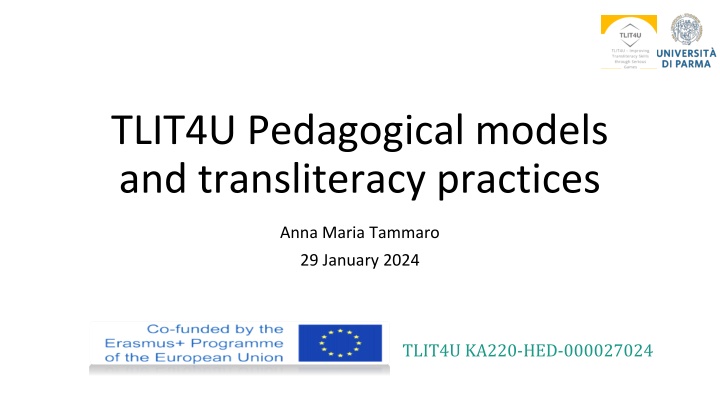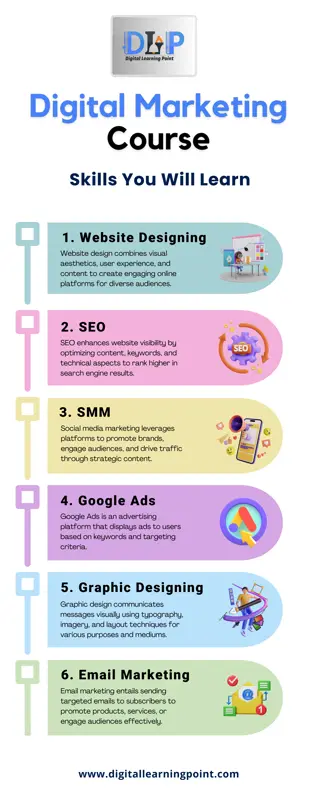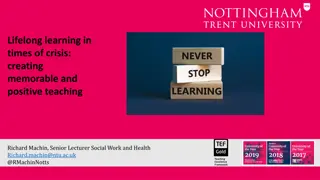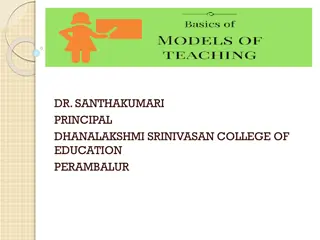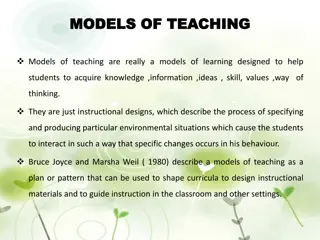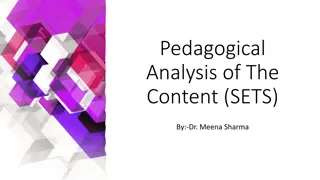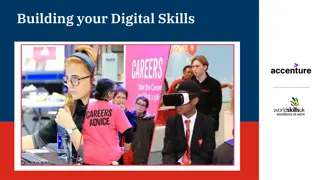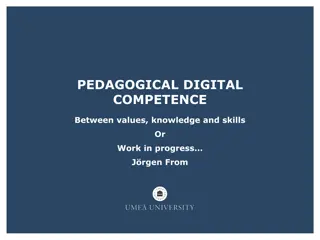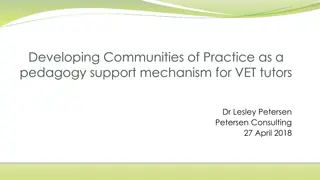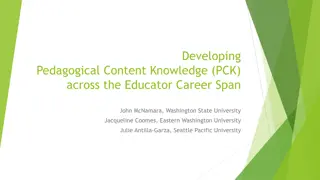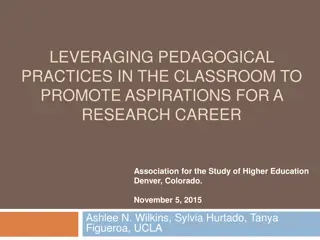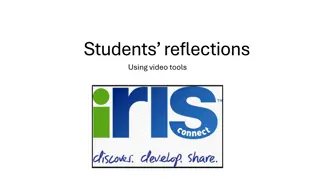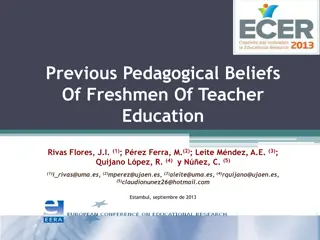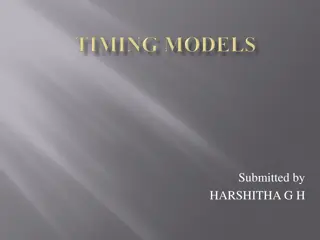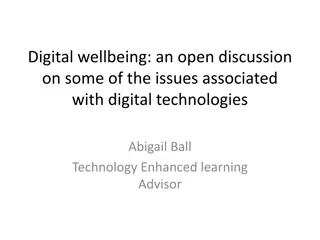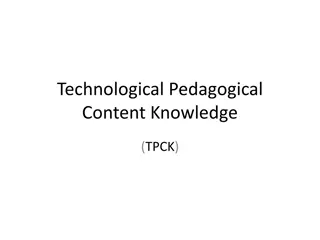Exploring Transliteracy and Pedagogical Models in Digital Learning Environments
This content delves into the concepts of transliteracy and pedagogical models, emphasizing the importance of mapping meaning across various media in digital learning. It discusses the interconnectedness of text literacy, visual literacy, and digital literacy, highlighting the social uses of technology. Additionally, it explores project milestones in teaching models and game-based learning, as well as digital fluency continuum and the inquiry cycle in active independent learning. The learning outcomes stress the need to connect existing knowledge, construct new understandings based on evidence, wonder and question for effective investigation, express findings compellingly, investigate scholarly resources, and reflect on the learning process and results.
Download Presentation

Please find below an Image/Link to download the presentation.
The content on the website is provided AS IS for your information and personal use only. It may not be sold, licensed, or shared on other websites without obtaining consent from the author.If you encounter any issues during the download, it is possible that the publisher has removed the file from their server.
You are allowed to download the files provided on this website for personal or commercial use, subject to the condition that they are used lawfully. All files are the property of their respective owners.
The content on the website is provided AS IS for your information and personal use only. It may not be sold, licensed, or shared on other websites without obtaining consent from the author.
E N D
Presentation Transcript
TLIT4U Pedagogical models and transliteracy practices Anna Maria Tammaro 29 January 2024 TLIT4U KA220-HED-000027024
Inquiry based learning: conceptual model
Transliteracy Transliteracy is concerned with mapping meaning across different media and not with developing particular literacies about various media. It is not about learning text literacy and visual literacy and digital literacy in isolation from one another but about the interaction among all these literacies. It focuses more on the social uses of technology, whatever that technology may be.
TLIT4U Project Milestones Workflow PR1 Development of model for teaching PR2 Development of didactic materials PR3 Design of game based learning PR4 Game development
Digital fluency continuum: students gap Students Workshop results in Italy DIGITAL FLUENCY: Having the knowledge and strategies to use digital tools and resources effectively to collaborate, communicate, create, network, and inquire. Participants: Engineering and computer science: 23% Languages and Letters: 28% Communication and Media: 23% Education Science 4% Library 19% I think that, in order to do a great research, you need to be open minded about the topic and to carefully analyze what you read and not just copy and paste everything. I have an idea, I google it, if I find some nice information, I take it and use it
Inquiry cycle INQUIRY: active independent learning for information fluent learners Fluent learners take an approach of curiosity, discovery, academic rigor, critical thinking and can create and communicate new understandings
Learning outcomes CONNECT: what you already know and what you do not know CONSTRUCT: building an accurate understanding based on evidence WONDER: identifying questions better guiding investigation EXPRESS: making the most compelling case given audience and evidence INVESTIGATE: knowing scholarly resources available and use them effectively REFLECT: self evaluation of your process and your results
CONNECT CONNECT COMPETENCIES: prior knowledge and knowledge gaps on the research problem Learning outcomes Simulation training Assessment Mind map Find (3) KW in research article Examples Background of topic Brainstorming on knowledge gap Peer and self formative assessment
WONDER WONDER COMPETENCIES: justify research strategy and formulating research questions Learning outcomes Simulation training Assessment Develop deeper questions by asking What if? Why? and So what? Examples Peer Make hyphotheses, identify methods, ask rich questions assessment Procrastination.. .
INVESTIGATE INVESTIGATE COMPETENCIES: finding and evaluating information and data Learning outcomes Simulation training Assessment Collecting data from different sources and experiments Evaluate how information and data answer to questions Peer formative assessment Teachers prepare templates Literature review (5 most important references) Citation style Examples
CONSTRUCT CONSTRUCT COMPETENCIES: make meaning and build new understandings Learning outcomes Simulation training Assessment Prepare a structured abstract (250 words) Plagiarism Construct new understandings Draw conclusions on questions Self assessment Teacher s questions
EXPRESS EXPRESS COMPETENCIES: communicate the found evidence to target audience Learning outcomes Simulation training Assessment Revised outline of research proposal and its significance Express new ideas and share learning Self and Peer assessment Proving marking rubric so students
REFLECT REFLECT COMPETENCIES: evaluating how you have worked and your results Learning outcomes Simulation training Assessment Reflection on the Inquiry process New questions Teachers prepare checklist Self assessment
Conclusion Focus on the Information-Fluent Learner! Inquiry based learning integrates: transliteracy practices with the STEAM approach transliteracy practices with the game based model at conceptual level
